How Staying Still Can Take Us on Our Greatest Journeys
There is now a meditation room in every building on the General Mills campus in Minneapolis, and Congressman Tim Ryan leads his colleagues in the House of Representatives in sessions of sitting still, reminding them that, if nothing else, it's been found by scientists that meditation can lower blood pressure, help boost our immune system, and even change the architecture of our brains. This has no more to do with religion or any other kind of doctrine than a trip to the (mental) health club might.
Indeed, fully a third of American companies now have "stress-reduction programs," and the number is increasing by the day — in part because workers find unclogging their minds' arteries to be so exhilarating. More than 30 percent of those enrolled in such a program at Aetna, the giant heath-care company, saw their levels of stress dropping by a third after only an hour of yoga each week. The computer chip maker Intel experimented with a "Quiet Period" of four hours every Tuesday, during which three hundred engineers and managers were asked to turn off their e-mail and phones and put up "Do Not Disturb" signs on their office doors in order to make space for "thinking time." The response proved so enthusiastic that the company inaugurated an eight-week program to encourage clearer thinking. At General Mills, 80 percent of senior executives reported a positive change in their ability to make decisions, and 89 percent said that they had become better listeners, after a similar seven-week program. Such developments are saving American corporations three hundred billion dollars a year; more important, they're a form of preemptive medicine at a time when the World Health Organization has been widely quoted as stating that "stress will be the health epidemic of the twenty-first century."
It can be strange to see mind training — going nowhere, in effect — being brought to such forward-pushing worlds; the businesses that view retreats as the best way to advance may simply be deploying new and imaginative means to the same unelevated ends. To me, the point of sitting still is that it helps you see through the very idea of pushing forward; indeed, it strips you of yourself, as of a coat of armor, by leading you into a place where you're defined by something larger. If it does have benefits, they lie within some invisible account with a high interest rate but very long-term yields, to be drawn upon at that moment, surely inevitable, when a doctor walks into your room, shaking his head, or another car veers in front of yours, and all you have to draw upon is what you've collected in your deeper moments. But there's no questioning the need for clarity and focus, especially when the stakes are highest.
The need for an empty space, a pause, is something we have all felt in our bones; it's the rest in a piece of music that gives it resonance and shape. That's the reason American football players prefer to go into a huddle rather than just race toward the line of scrimmage, the reason a certain kind of writer will include a lot of blank space on a page, so his sentences have room to breathe (and his readers, too). The one word for which the adjective "holy" is used in the Ten Commandments is Sabbath.
In the book of Numbers, God actually condemns to death a man found collecting wood on the Sabbath. The book on the Sabbath is the longest one in the Torah, as Judith Shulevitz explains in her fine work, The Sabbath World. Another part of the Torah, dealing with the Sabbath's boundaries, takes up 105 pages more.
Keeping the Sabbath — doing nothing for a while — is one of the hardest things in life for me; I'd much rather give up meat or wine or sex than the ability to check my emails or get on with my work when I want to. If I don't answer my messages today, I tell myself, there will only be more to answer tomorrow (though, in truth, refraining from sending messages will likely diminish the number I receive); if I take time off, I somehow believe, I'll be that much more hurried the rest of the time.
Whenever I finally force myself away from my desk for a day, of course, I find the opposite: the more time I spend away from my work, the better that work will be, most often.
One day Mahatma Gandhi was said to have woken up and told those around him, "This is going to be a very busy day. I won't be able to meditate for an hour." His friends were taken aback at this rare break from his discipline. "I'll have to meditate for two," he spelled out.
I mentioned this once on a radio program and a woman called in, understandably impatient. "It's all very well for a male travel writer in Santa Barbara to talk about taking time off," she said. "But what about me? I'm a mother trying to start a small business, and I don't have the luxury of meditating for two hours a day." Yet it's precisely those who are busiest, I wanted to tell her, who most need to give themselves a break. Stress is contagious, studies have found. If only the poor, overburdened mother could ask her husband — or her mother or a friend — to look after her kids for thirty minutes a day, I'm sure she'd have much more freshness and delight to share with her children when she came back, and with her business.











